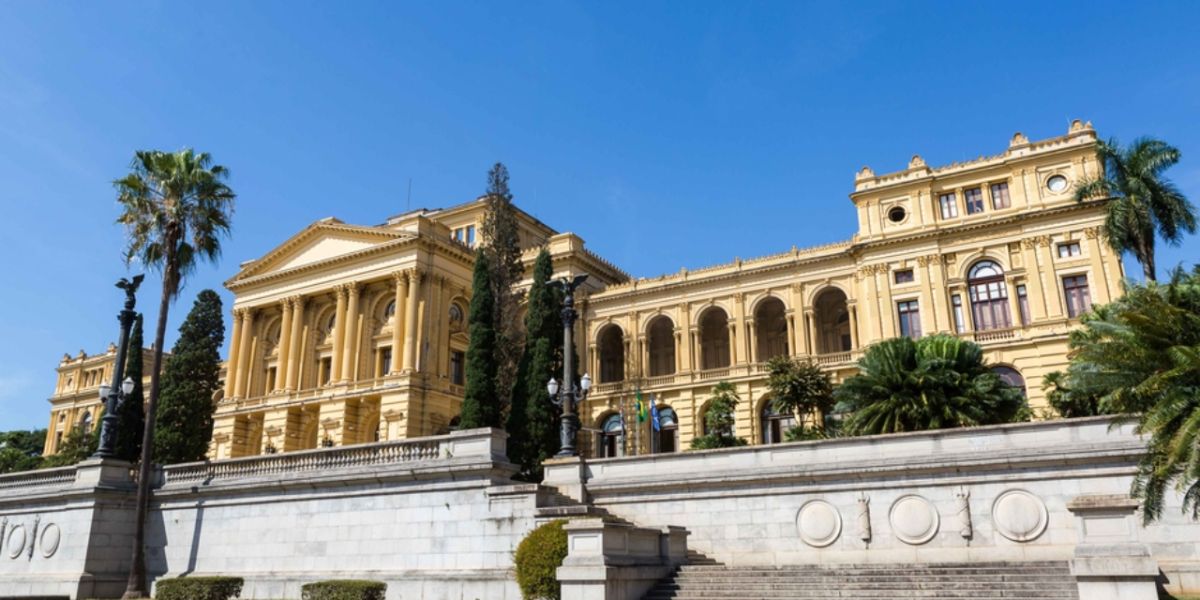
Pursuing a course of study in Brazil can be a great addition to your CV; it can be fun, interesting, and exciting too. As the largest country in Latin America, Brazil is growing in importance in the world, and completing your studies here, or being part of an exchange study program, can benefit you professionally. Brazil has many good universities offering a variety of courses, many of which are open to international students. However, while some courses may be taught in English, you'll need to have a good grasp of Portuguese to be accepted into a study program in Brazil.
Good to know:
You'll have to pass the "CELPE-Bras", which is a national examination to certify your proficiency level for the Portuguese language. The certificate is accepted not only by universities but also by companies if you intend to seek an internship or a job in Brazil at the end of your studies.
The formalities of studying in Brazil
To study in Brazil, you'll need to apply for what's termed a type IV temporary visa. These visas may be granted for study at any level, from primary to post-graduate level, or as part of a supervised internship program. Language, technical, and theological studies also may qualify. Do note that if you're studying in Brazil for under 90 days, you won't have to apply for a student visa, as you can just enter the country as a tourist.
Applicants must attend a minimum of three hours of lessons per day, five days per week. Students aren't allowed to work unless they're taking part in a defined and supervised internship program.
Visas are valid for one year. They may be extended by visiting an office of the Federal Police at least one month before the expiration date of the original visa. Note that the visa is only valid so long as the holder continues to participate in the specified study program. Discontinuing your studies invalidates the visa.
The good news is, Brazilian student visas allow for multiple entries. So if you want to go on vacation or go home to visit family during your breaks, you're allowed to do so while still retaining the right to study in Brazil.
Obtaining a Student Visa
To get a Brazilian student visa, you'll need to submit an application to the nearest Brazilian embassy, consulate, or visa center before you leave for Brazil. However, if you're already in the country, you can apply at the nearest immigration center to change your status.
Regardless of whether you're applying for a student visa in or out of the country, you'll need to present the following documents to obtain the type IV visa:
- A passport that doesn't expire for at least the following six months and has at least two blank pages
- Two passport-sized photos
- Proof of ability to support yourself financially during the time in Brazil
- Online visa application form
- Return ticket/itinerary
- Letter of consent and additional documents for applicants under 18
- Letter from the educational institution in Brazil describing the details of the study program
- Criminal record for applicants aged 16 and above (issued in your country of residence)
- Receipt for the visa fee you've paid with the application ($180)
More documents may be required, depending on the particular type of study program or internship. For details and the latest information, please contact the Brazilian Consulate that serves your geographic area.
Important:
Some documents may need to be translated into Portuguese and certified.
Allow plenty of time for the application process, first for acceptance by your intended institute of study, and then for visa processing by the Brazilian authorities. The student visa can take between one and three months to receive.
Important:
Once in Brazil, you're required to register with the Federal Police within 30 days following your arrival.
Higher education in Brazil
You can pursue both your undergraduate and graduate degrees in Brazil, as well as your PhD if you wish. Do note that this country's higher education system will differ slightly from the American one; it leans more towards European higher education systems. This is because Brazil was a Portuguese colony until 1825.
You should expect Brazilian universities to work like most other universities in the world. You'll have to attend lectures and then do readings and independent study on your own. For practical majors, you'll also have lab and/or workshop time.
While Brazil's higher education is gaining in reputation, it still has a ways to go. Do note that some of the degrees awarded by Brazilian universities won't be counted in other countries. If you don't plan on staying in Brazil and want to work elsewhere in the world, make sure you do some research on the degree and program you're interested in, as there's a chance it won't count when you move somewhere else.
Here's what to expect when you pursue your undergraduate and/or graduate degree in Brazil, as well as your PhD.
Undergraduate Programs
In Brazil, there are three different undergraduate programs.
The first is the bachelor's degree, which many people are familiar with. These programs take between three to six years to complete. You'll select a certain discipline and stick with it to earn a degree in this field.
The second is the licentiate degree. This takes three to four years to complete and allows you to become a teacher once you've completed the program.
Lastly, you have the associate degree. American universities also have this available at community colleges. It takes two to three years to complete and is basically a specialization in a certain subject.
Graduate Programs
There are two types of graduate programs in Brazil: lato sensu and stricto sensu. The main difference between the two is whether or not you want to go on to pursue a PhD.
If you only want a graduate degree, then opt for the lato sensu degree. This gives you a graduate degree in a specific subject, that's it. Otherwise, if you pursue a stricto sensu degree, you can have the opportunity to pursue a PhD afterward if you do well enough.
Whichever one you choose, graduate programs will take one to two years to complete.
PhD Programs
Should you choose to go on to a PhD program, this should take you around three to four years to complete it. However, many people choose to work while doing their PhD, so this can extend your studies to up to six years.
Top universities in Brazil to consider
Do you want to study in Brazil but you don't know which universities to choose? Here are some of the best ones in the country to consider.
University of São Paulo
The University of São Paulo (or Universidade de São Paulo (USP)) is the largest university in the entire nation. There are 21,000 people on staff and over 88,000 students attend this university.
There's no singular campus for USP. Instead, there are 11 campuses, and four are located in São Paulo itself. In addition, it has five associated hospitals, over 24 museums and galleries, and its own orchestra and TV channel.
USP is a good university to choose if you'd like to major in a hard science. Most of the scientific papers that come out of Brazil are from USP, so this is proof of how good the university is.
Universidade Estadual de Campinas
Universidade Estadual de Campinas (UNICAMP) is a public university located in São Paulo. It's another one that's great for research, as it's responsible for 15% of Brazilian research. Out of the 37,000 students that attend UNICAMP, almost half are graduate students.
There's a teaching hospital here that participates in many medical assistance programs. UNICAMP is also great for engineering, as students in this area are often given opportunities to work with major companies like Petrobas and Mercedes Benz.
Universidade Federal do Rio de Janeiro
Universidade Federal do Rio de Janeiro (UFRJ) is one of the nation's largest federal universities. There are 9,300 staff members and 56,000 students.
You'll find 157 undergraduate and 580 graduate programs here, as well as seven museums. This makes this university excellent for subjects like geology, botany, zoology, and paleontology. Other strong subjects at UFRJ include natural and mathematical sciences, health sciences, technology, humanities, and philosophy.
Tuition fees for universities in Brazil
It's difficult to tell you exactly how much you'll pay for tuition, as Brazilian universities can set their own prices. Expect to see widely varying tuition fees, ranging from $2,000 to even $10,000 per year (in USD). This is regardless of whether you're doing your undergraduate, graduate, or PhD degree. To narrow down how much you'll need to spend, you should look up your university's site to see its tuition fees.
In most cases, you'll need to pay tuition for the next academic year by February. However, you should check with your university to double-check you don't miss the deadline.
Also, you'd usually pay your tuition in Brazilian reals. However, there are some universities that accept American dollars.
Scholarships
While in most other countries, scholarships aren't available for international students, there are some available in Brazil. This can help immensely and make your dreams of studying abroad come true.
One example is the Brazilian Government Exchange Program. This scholarship is given to students who come from conflict zones or developing countries, and it covers the students' full tuition. If you qualify, apply in August when applications open.
Another example is the PAEC OAS-GCUB Scholarship given by the Organization of American States. To qualify, you must be a citizen of a country that's part of this organization. This scholarship will cover tuition for master's and PhD programs at the top Brazilian universities.
Living in Brazil
Studying in Brazil can be wonderful, as you'll find yourself in the midst of some amazing cities. However, this does come at a price. The cost of living might be higher than in your home country, especially if you pick a university in São Paulo, Rio de Janeiro, or Brasilia, the three most expensive cities in the nation.
One thing you might not be used to factoring in for the cost of living is water. While you can drink tap water in most major cities, it's still safer to drink bottled water instead, so you'll have to consider that.
You'll have the option of living in university dorms. However, these probably aren't the dorms you're used to. In most Western universities, you'd live in dorms that are located on campus. In Brazil, these are off-campus but are still very near to your university. These dorms are called repúblicas.
Do note that most universities won't offer accommodations. You'll have to find private rooms or apartments on your own. Depending on where you're going to school, the cost might be too much for you to rent a 1-bedroom apartment on your own. To give you a rough idea, a 1-bedroom apartment in São Paulo costs R$2,300, which is the equivalent of $430 (USD). If this is too much, you can always find a fellow student to rent out an apartment together.
In recent years, there's been an unprecedented need for student housing, as more and more students are drawn to Brazilian universities. So it might be tough to find suitable accommodations. While Brazil's aiming to build more student housing facilities, it might take a while before these are ready for residence. So if you're able to find housing, we'd suggest taking it immediately so you have somewhere to live as soon as you arrive in the country.
Healthcare for students
While you're in Brazil, you want to be sure you're well taken care of should you get ill. It's a good idea to have regular checkups anyway, so you might be wondering about healthcare for students.
What's great about this country is that healthcare is a constitutional right, which means it's free. International students can also take advantage of the free healthcare system at government-run hospitals.
However, if you feel better taking out temporary insurance while in Brazil, that's doable as well. We recommend you do this if you're studying in or traveling to more remote areas of Brazil, as the healthcare facilities out in those areas may not be as good.
Useful links:
We do our best to provide accurate and up to date information. However, if you have noticed any inaccuracies in this article, please let us know in the comments section below.








